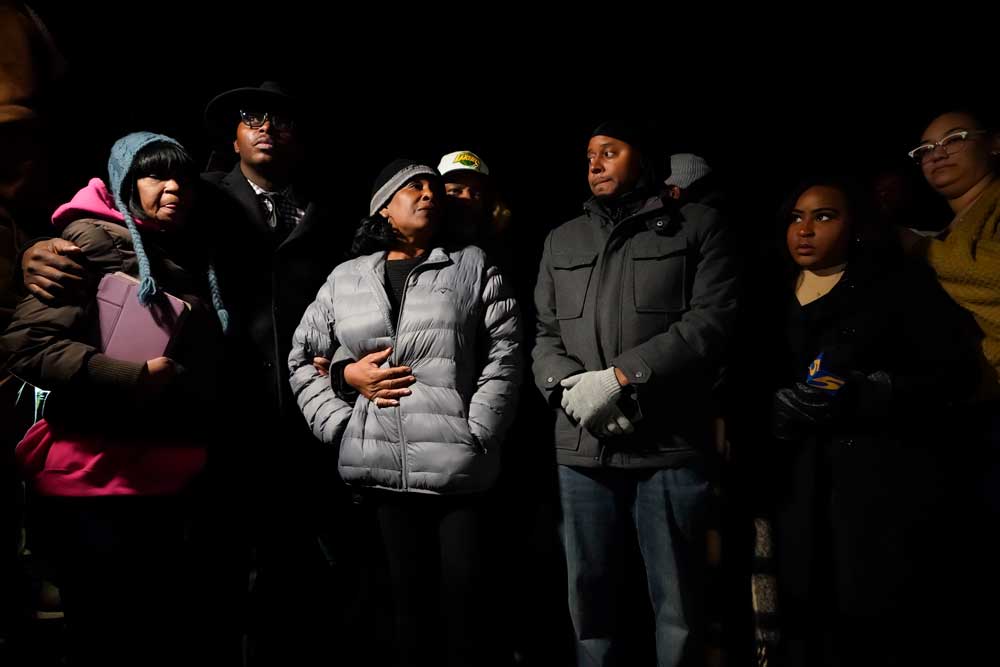
By Denise Herd
As the video goes public of Black police officers in Memphis beating Tyre Nichols to death, it is a stark reminder of George Floyd’s murder by a Minneapolis police officer in 2020. That set up the largest protests in U.S. history and a national reckoning with racism.
But beyond any protests, every police killing – indeed, every violent act by police toward civilians – can have painful and widespread consequences.
Each year, U.S. police kill about 1,000 people, which equals approximately 8% of all homicides for adult men. This risk is greater for Black men, who are about 2.5 times more likely to be killed by the police than white men.
The effects of these killings ripple from the individual victim to their families and local communities as they cope with the permanence of injury, death and loss. People victimized by the police have demonstrated higher-than-usual rates of depression, psychological distress and even suicide risk.
But the pain doesn’t stop there.
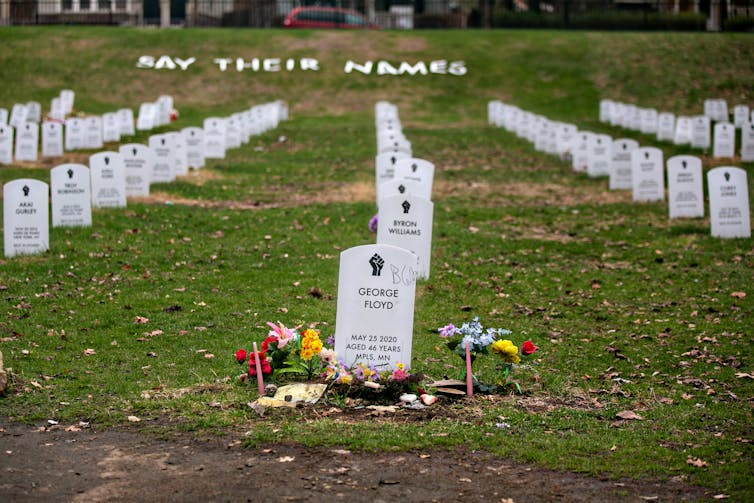
Jason Armond/Los Angeles Times via Getty Images
Public health research I am conducting with my research team at the University of California, Berkeley finds that the harm from police killings of Black people goes beyond the people and places directly involved in these incidents to affect Black Americans far from the site of the killing, who may have never met the victim.
Evidence shows that many Black Americans across the U.S. experience police killings of other Black people as traumatic events, and that this trauma diminishes the ability of Black communities to thrive.
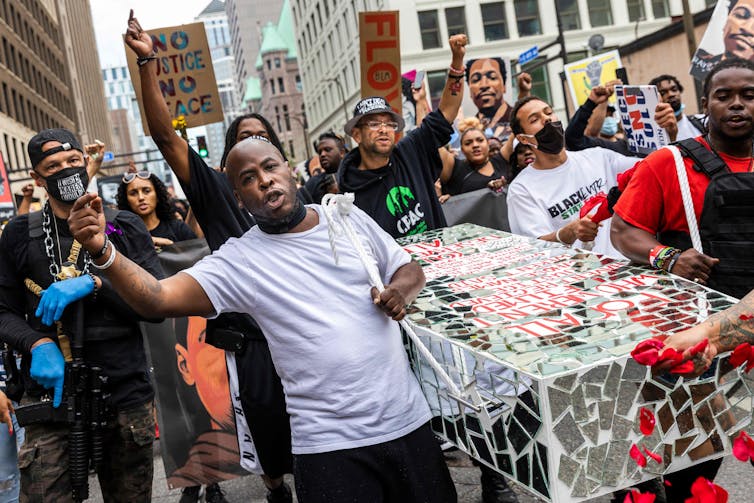
Kerem Yucel/AFP via Getty Images
The ripple effect
One of the key studies illustrating this ripple effect of police killings on the mental health of Black Americans was published in the medical journal The Lancet in 2018.
Boston University researchers surveyed 103,710 people in the U.S. to measure the relationship between police killings and Americans’ mental health.
Among survey respondents, each police-related fatality of an unarmed Black person in the state where they lived was associated with an increase in the number of days when they reported poor mental health relating to stress, depression or emotional issues.
The authors estimated that the cumulative impact of U.S. police killings of unarmed Blacks could add up to 55 million additional poor mental health days for the U.S.‘s 44 million Black people.
Police killings of armed Black people did not elicit the same distress among Black Americans. And white Americans suffered no additional poor mental health days, as defined by the researchers, after exposure to police killings – no matter the circumstances or race of the victim.
The authors speculated that historical and institutional patterns of systematic, targeted violence against Black people – combined with a general lack of legal consequences when police officers commit such crimes – make the killings of unarmed Blacks particularly stressful for Black Americans.
“Racism, like trauma, can be experienced vicariously,” they concluded.
A 2021 study substantiates the Boston University’s mental health findings.
Scouring emergency department admission records in 75 counties in five U.S. states, researchers found that within three months following a police killing of an unarmed Black person in the county in which they reside, Black Americans sought treatment at local emergency departments for depressive symptoms 11% more frequently than in other months.
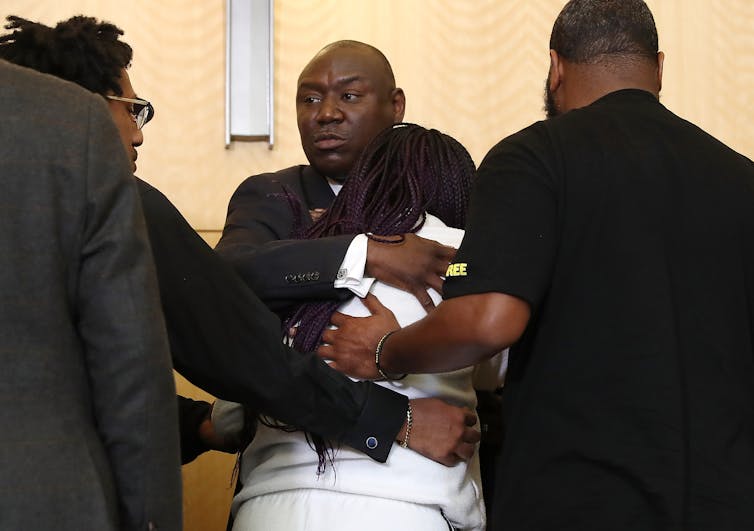
Justin Sullivan/Getty Images
Prenatal and childhood trauma
Black women experience acute fear that their children will be harmed by the police.
Those who expressed beliefs that Black youth are at higher risk for having negative police experiences were 12 times more likely to report symptoms of depression during their pregnancy than other women, according to one study from 2017.
Depression during pregnancy can increase the risks for health problems for both parent and child, including newborns with low birth weight or premature delivery – both major causes of infant death. Depression during pregnancy also puts new mothers at higher risk for postpartum depression, which may negatively affect their ability to nurture their children.
Police killings can also directly harm the mental health of young people of color. According to Brendesha Tynes’ 2019 study, exposure to viral videos of police killings is associated with symptoms of depression and post-traumatic stress disorder among adolescents of color.
Health effects
Police killings and other negative encounters with police create a climate of fear in Black communities that takes a physical toll on residents.
For example, aggressive policing can cause fear and excessive watchfulness among Black Americans that, at elevated levels, are associated with high blood pressure. A New York City-based research team found in 2016 that in neighborhoods where police engaged in the invasive practice of “stop and frisk,” residents were more likely to have not only high blood pressure but to also suffer from diabetes, get asthma attacks and be overweight.
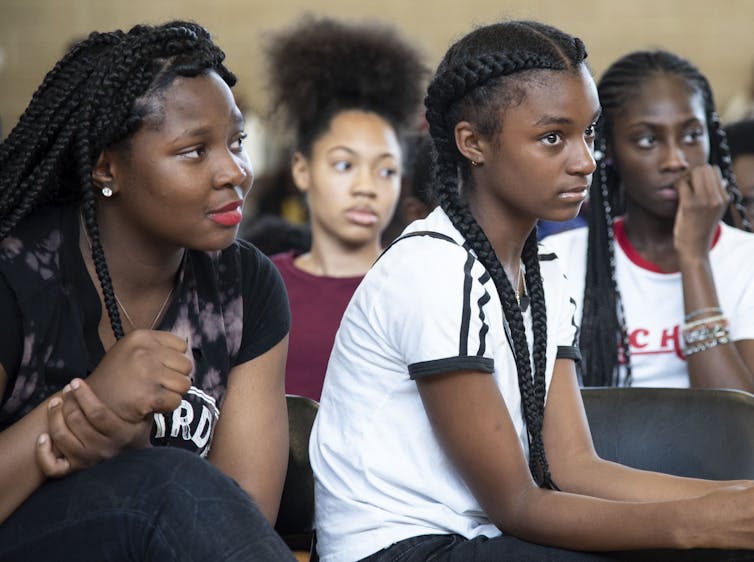
Calla Kessler/The Washington Post via Getty Images
A 2016 study conducted in 75 metropolitan areas across the U.S. found that a police killing of a Black person in the area the year prior was associated with a 7.5% rise in local syphilis rates and a 4% rise in gonorrhea rates – perhaps, the authors suggest, because the associated psychological stress leads to riskier sexual behavior. Fear of a police run-in and distrust of institutions might also lead people in these areas to avoid medical services.
Police violence in a given neighborhood is also linked to lower trust in government, less frequent voting and higher crime rates. It decreases residents’ perception of their ability to stand together and control what happens in their neighborhood.
Policing seen as racism
Many people in heavily policed neighborhoods see negative police encounters as forms of discrimination or racism – both of which are scientifically documented to worsen the health of Black people.
“People understand that this system is filled with all sorts of inequality and injustice, and that implicit bias and just outright racism is embedded in the way that policing is done in this nation,” said Opal Tometi, a co-founder of Black Lives Matter, in an interview with the New Yorker. It amounts to “a war on Black life.”
Ultimately, the cumulative impact of harmful policing can shred the social fabric of Black neighborhoods and drain Black people and their communities of the health and social resources they need to live healthy lives.
This is an updated version of an article originally published May 24, 2021.
![]()
Denise A. Herd is Professor of Public Health at the University of California, Berkeley.






























Atwp says
Like the story. I feel tensed up around police. I guess it is the trauma African Americans get from cops. Cops are not held responsible for killing people. People wonder why cops do what they do and get away. Police department was established to control the black people many years ago, they are still doing that. It is good cops get killed too. Am getting angry will stop commenting.
ASF says
Are people blind, deaf and dumb these days about how many cops are killed and injured on the job?
The killing of Tyre Nichols was horrendous. It was perpetrated at the hands of multiple People of Color who were also police officers. People of Color kill People of Color everyday and good cops are out there trying to prevent that from happening. Some of those police officers are People of Color and some are White.
Police reform is way overdue. It starts at the top. The person who headed this police division–who happened to be a Person of Color–was clearly unfit for their position. Some of the police officers who beat Tyre Nichols were part of a school fraternity that was scandalous for the way they treated their pledges–with some of those instances ending in injury and even death. Their fitness to serve was questionable to begin with.
We need better tools with which to evaluate officers in the application and training process and well as a way to monitor the mental health and fitness of police officers in high risk/high violence assignments. You wouldn’t keep a soldier in extreme combat conditions forever and expect that to work out. Why would anyone think that putting police officers in that postion would turn out any differently? PTSD Is real thing.
This issue isn’t solely a matter of Race. Race is part of problem but if we focus solely on Race and not on other operational changes in the system that need to be made, we are making a big mistake. If that mistake ends up with their being less police officers or worse candidates coming forward to serve, underwater communities will suffer the most.
In the specific case of Tyre Nichols–I feel especially sorry for his mother who has to see that video replayed on the media 24 hours a day, ceaselessly. PTSD may become a real problem for her as well.
James says
The elected officials in Washington are letting the people of the USA down. The Cult GOP refuses to cooperate with the Democrats to change laws to protect the people instead they only care about power, greed and having the NRA donate money to their campaigns.
Now we have a Cult party running the House and all they have spoken about since taking control is who they can attack and investigation, not one word from any of them how they want to improve our country for its people. So while they are in control of the House expect nothing will improve for our country it will only get worse then it already is.
Ed says
Without condoning the stupidity of the cops in the George Floyd or Tyre Nichols cases, the biggest danger to the black community is and has always been, young black men armed with illegal handguns. As a retired 36 year ghetto cop, I responded to hundreds of black on black shootings and well over one hundred homicides. In those 36 years, members of my agency shot and killed two ARMED black men and wounded approximately five Armed black men. The homicides that I either responded to or investigated include a total of one white shooter and that was a case of self defense when a black man was robbing his business at gunpoint. This article makes it appear that all Police Involved killings are the result of a racist cop society. While we all know that there are a VERY SMALL percentage of cops that shouldn’t be cops, what you and you’re contemporaries will never know, or accept is that no cop wakes up in the morning hoping to kill another human being, tarnish his/her own name and risk their career and family.